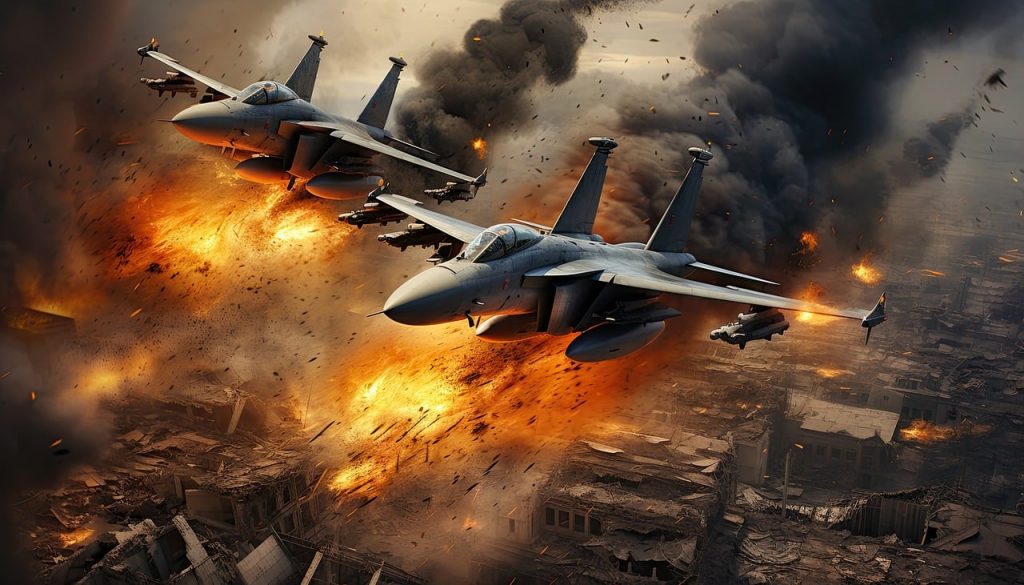In a dramatic escalation of tensions in the Middle East, Iran has launched a massive drone and missile attack on Israel, prompting swift and forceful responses from both sides and drawing international condemnation.
“Very little damage was caused,” according to Israel’s defense minister, Yoav Gallant. An Israel Defense Forces spokesperson said 99% of the more than 300 missiles and drones were intercepted. Sirens blared across the country and explosions were visible in the sky as the first wave reached Israel at around 2 am local time (midnight BST) and Israeli air defense systems went to work.
The US secretary of defence, Lloyd Austin, said US forces intercepted “dozens of missiles and UAVs [unmanned aerial vehicles] en route to Israel”, while Gallant praised the assistance of the US and “additional partners”.
World leaders condemned Iran’s attack, calling for restraint from regional powers including Saudi Arabia and Egypt. UN Secretary-General Antonio Guterres said: “I am deeply concerned about the real danger of a devastating region-wide escalation. I call on all parties to exercise maximum restraint to avoid any move that could lead to a major military conflict on multiple fronts in the Middle East.”
Here are key points on the unfolding crisis:
- Iran’s Massive Attack: Iran initiated an unprecedented assault on Israel, deploying over 200 drones and missiles, along with coordinated attacks by its proxies and allies. The Israeli army reported the launch of a “massive swarm” of weaponry aimed at Israeli positions.
- Claim of Self-Defense: Iran claimed the attack was in “self-defense” following a strike on its consular building in Syria. However, Israel countered that the assault was unprovoked and launched a defensive operation to intercept the incoming threats.
- US Support for Israel: US President Joe Biden reaffirmed “ironclad” support for Israel, stating that US forces assisted in neutralizing the majority of drones and missiles. Biden pledged to coordinate a diplomatic response with G7 allies to address Iran’s actions.
- Israeli Response: Israeli Prime Minister Benjamin Netanyahu vowed both defensive and offensive measures in response to the attack. Israel, which has long prepared for potential aggression from Iran, remains vigilant and determined to protect its territory.
- International Condemnation: Several nations, including EU members, Britain, France, and India, condemned Iran’s aggression and called for de-escalation. The UN Security Council convened an emergency meeting to address the crisis.
- Escalation of Regional Conflict: The conflict between Israel and Iran threatens to escalate into a broader regional confrontation, drawing in allies and exacerbating tensions across multiple fronts. Egypt has urged restraint to prevent further escalation.
- Backdrop of Ongoing Conflict: The attack comes amid ongoing hostilities between Israel and Hamas, compounded by tensions with Lebanon and Syria. The conflict risks evolving into a direct confrontation between Iran and its allies against Israel and the US.
The situation remains fluid and volatile, with the potential for further escalation or diplomatic efforts to defuse tensions. The international community faces the urgent task of mitigating the crisis and preventing further violence in the already volatile Middle East region.





